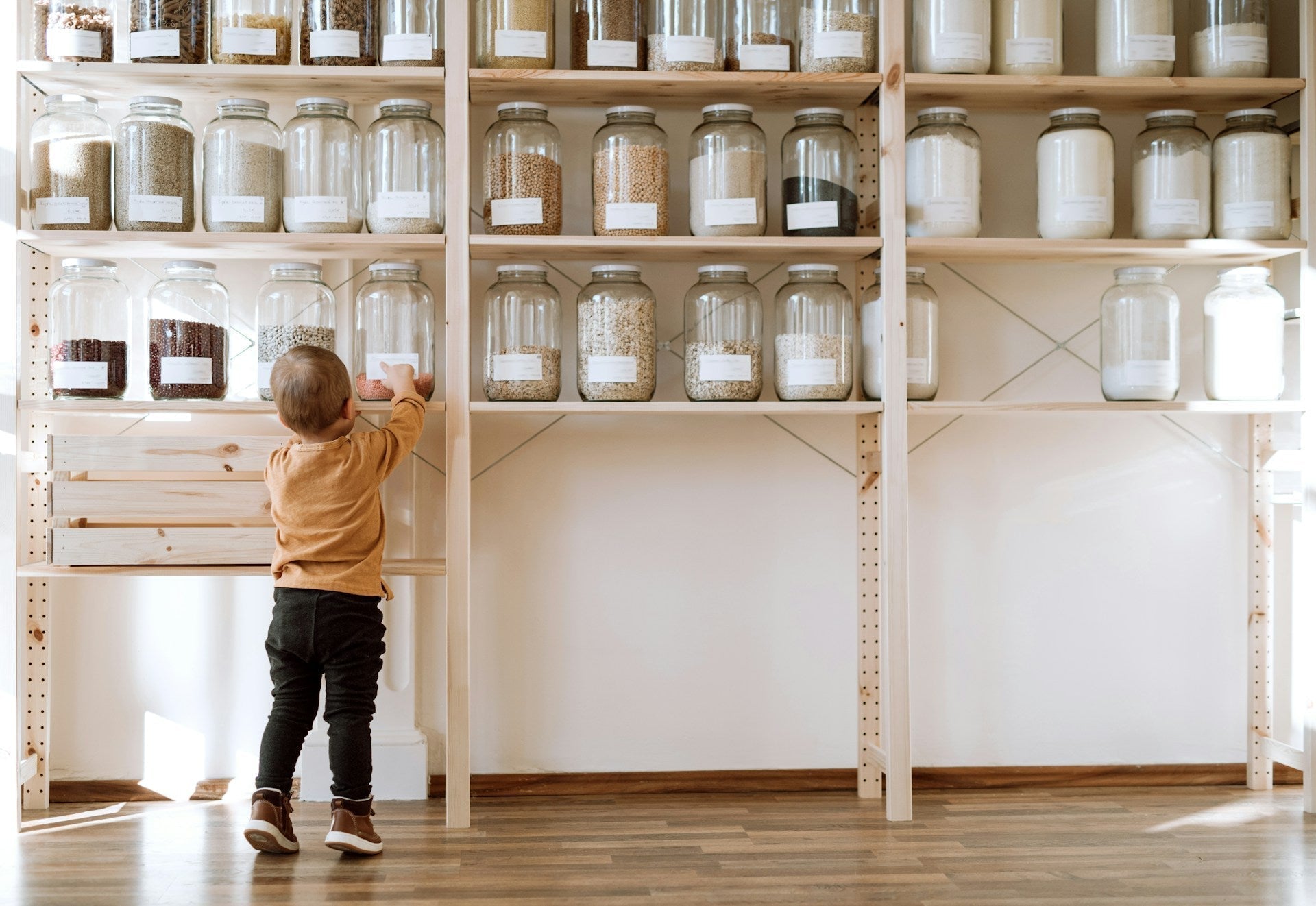The Low-Waste Lifestyle: Simple Swaps for a Conscious Home
Living a low-waste lifestyle isn’t about perfection—it’s about taking mindful, meaningful steps toward a more sustainable way of living. The good news is that even small, achievable changes can significantly reduce waste, enhance your personal well-being, and help nurture our planet.
If you’re ready to embrace a low-waste lifestyle, here’s your comprehensive guide filled with practical, impactful swaps that make your home greener, healthier, and more joyful.
Why Choose a Low-Waste Lifestyle?
On average, each American generates about 4.9 pounds of waste per day—much of it single-use plastics, disposable packaging, and non-recyclable materials. These items clutter our landfills, oceans, and natural spaces, threatening wildlife and ecosystems, and compromising the integrity of our waterways and soil.
Choosing a low-waste lifestyle reduces environmental harm, conserves resources, and fosters a deeper, more mindful connection to the products and resources we use daily. It’s about living with intention and finding joy in simpler, more sustainable choices.
Simple Low-Waste Swaps to Transform Your Home
1. Kitchen & Food Storage Solutions
The kitchen is often the biggest source of household waste, making it the perfect starting point for your low-waste journey.
Swap Plastic Wrap for Reusable Materials: Plastic wrap is single-use and difficult to recycle, if at all. Silicone and beeswax wraps are reusable, washable, compostable, and ideal for wrapping sandwiches, fruits, vegetables, and leftovers.
Invest in Durable, Eco-Friendly Containers: Glass, ceramic, stainless steel, and certain silicone food containers are safer, healthier, and long-lasting alternatives to disposable plastic storage containers. They’re easier to clean and won't leach harmful chemicals.
Replace Disposable Bags with Reusable Alternatives: Choose reusable grocery totes, mesh produce bags, and silicone zip-top bags for bulk shopping. These items drastically reduce plastic waste and help you shop more consciously.
Swap Teflon Kitchen Tools for Bamboo or Natural Wood: Teflon-coated cookware can release harmful chemicals when scratched or overheated. Opt for utensils made from bamboo, natural wood, or stainless steel. These materials are durable, sustainable, and safer for cooking.
Composting Food Scraps: Start a compost bin or use a countertop composter to divert food waste from landfills. Compost can be used to enrich your garden soil, reducing the need for chemical fertilizers.
Buy in Bulk: Purchase dry goods like grains, pasta, and nuts from bulk bins using your own reusable containers. This reduces packaging waste and often saves money.
Use Reusable Dishcloths and Sponges: Replace disposable paper towels with washable cloth napkins, towels, and dishcloths. Swap synthetic sponges for natural alternatives like loofah or cellulose sponges, which are compostable.
Filter Your Own Water: Instead of buying bottled water, use a water filter or install a faucet filter. This reduces plastic bottle waste and can be more cost-effective in the long run.
2. Sustainable Bathroom & Personal Care Products
Transform your bathroom into an eco-friendly oasis with these simple and effective swaps:
Choose Shampoo & Conditioner Bars: Bottled products contribute significantly to plastic waste. Solid shampoo and conditioner bars, as well as face and body wash and lotion bars, eliminate packaging, often contain cleaner ingredients, and last longer.
Eco-Friendly Dental Care: Switch from plastic toothbrushes to biodegradable bamboo options and floss packaged in reusable glass or compostable containers. Natural toothpaste and mouthwash now come in a variety of package-less options such as reusable glass containers and aluminum bottles. It’s a small change with significant impact.
Zero-Waste Personal Care Products: Opt for refillable deodorants, toothpaste tablets, plastic-free razors (safety razors with replaceable blades or compostable travel razors), and sustainably packaged skincare. Every product swap makes your routine more mindful.
Ditch the Disposables: Replace single-use plastic razors, cotton swabs, and makeup wipes with reusable alternatives like safety razors, bamboo cotton swabs, and washable makeup remover pads.
Sustainable towels and bath mats: Choose organic cotton or bamboo towels and bath mats that are gentle on the environment and your skin.
3. Eco-Friendly Laundry & Cleaning
Conventional cleaning products often come in plastic packaging and contain harsh chemicals. Here’s how to keep your home clean sustainably:
DIY Natural Cleaners or Refillable Cleaning Products: Replace disposable bottles with refillable glass spray bottles and gentle cleaning concentrates. Vinegar, baking soda, and essential oils make effective natural cleaners.
Use Wool Dryer Balls Instead of Dryer Sheets: Dryer sheets are disposable and often chemically treated. Wool dryer balls are reusable, natural, and reduce drying time and static cling.
Eco-Conscious Laundry Detergents: Opt for detergent strips, powders, or refillable liquid detergent to minimize plastic waste. Choosing plant-based formulas also protects waterways.
4. Everyday Sustainable Essentials
Simple daily swaps can profoundly lower your waste footprint:
Reusable Water Bottles, Cutlery, and Travel Mugs: Carry reusable containers and cutlery wherever you go, avoiding single-use plastic bottles and disposable coffee cups. It’s cost-effective, convenient, and planet-friendly.
Eco-Friendly Stationery and Office Supplies: Choose notebooks made from recycled paper, refillable pens, and sustainable office supplies. Reduce waste at your workspace through conscious product choices.
Sustainable Gifting and Wrapping: Consider reusable fabric gift wraps, recycled paper, or handmade wrapping solutions. Choose sustainable cards or digital options for special occasions.
5. Sustainable Fashion and Mindful Wardrobes
Our clothing choices greatly impact environmental health. Embrace slow fashion principles by:
Buying Fewer, Higher-Quality Items: Invest in ethical, sustainable brands, and focus on timeless pieces. Choose materials like organic cotton, hemp, or recycled fabrics.
Supporting Secondhand or Vintage: Explore thrift shops, clothing swaps, or resale platforms. It’s affordable, sustainable, and extends the life of garments.
Adopting Eco-Friendly Laundry Habits: Wash less frequently, choose cold water cycles, and line-dry clothing when possible. Extend the life of your clothing and reduce energy usage significantly.
Mindset Matters: Progress Over Perfection
A low-waste lifestyle isn’t about immediate perfection—it’s about gradual, sustainable progress. Embrace curiosity and mindfulness rather than strict rules. Celebrate each small success and stay motivated by remembering that every effort, however small, contributes meaningfully to global change.
Taking Low-Waste Living into Your Community
As you become comfortable with sustainable swaps, consider sharing your experience with your community. Participate in local sustainability initiatives, community clean-ups, or educational workshops. Your journey can inspire others and amplify positive environmental impact far beyond your own home.
Final Thoughts: Your Impact Matters
Choosing a low-waste lifestyle is an empowering decision to live with greater intention, joy, and environmental stewardship. By taking small, consistent steps, you create lasting positive change for yourself, your community, and the planet we all share.
How will you start your low-waste journey today?




Leave a comment